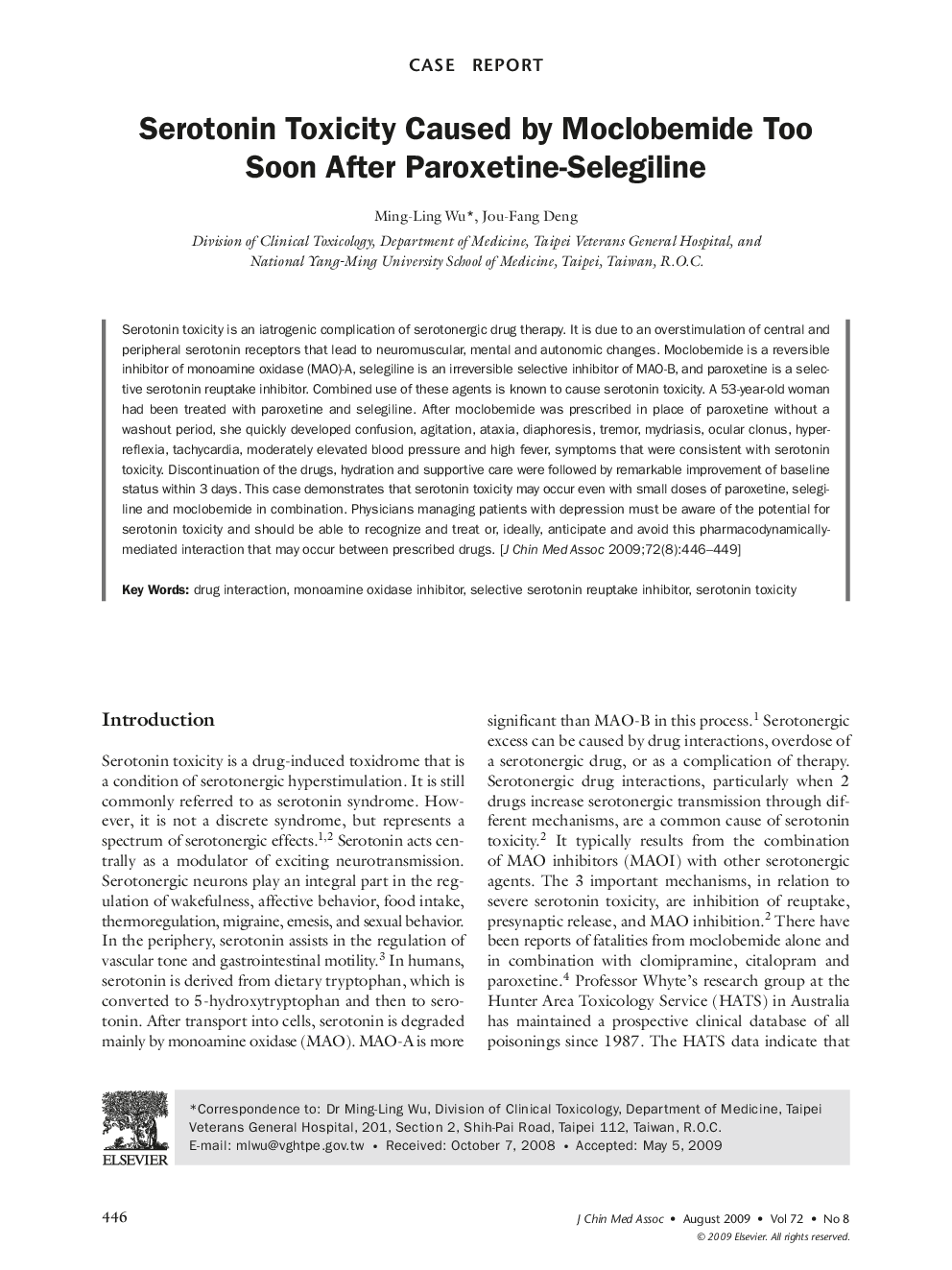| Article ID | Journal | Published Year | Pages | File Type |
|---|---|---|---|---|
| 3476876 | Journal of the Chinese Medical Association | 2009 | 4 Pages |
Serotonin toxicity is an iatrogenic complication of serotonergic drug therapy. It is due to an overstimulation of central and peripheral serotonin receptors that lead to neuromuscular, mental and autonomic changes. Moclobemide is a reversible inhibitor of monoamine oxidase (MAO)-A, selegiline is an irreversible selective inhibitor of MAO-B, and paroxetine is a selective serotonin reuptake inhibitor. Combined use of these agents is known to cause serotonin toxicity. A 53-year-old woman had been treated with paroxetine and selegiline. After moclobemide was prescribed in place of paroxetine without a washout period, she quickly developed confusion, agitation, ataxia, diaphoresis, tremor, mydriasis, ocular clonus, hyper-reflexia, tachycardia, moderately elevated blood pressure and high fever, symptoms that were consistent with serotonin toxicity. Discontinuation of the drugs, hydration and supportive care were followed by remarkable improvement of baseline status within 3 days. This case demonstrates that serotonin toxicity may occur even with small doses of paroxetine, selegi-line and moclobemide in combination. Physicians managing patients with depression must be aware of the potential for serotonin toxicity and should be able to recognize and treat or, ideally, anticipate and avoid this pharmacodynamically-mediated interaction that may occur between prescribed drugs.
